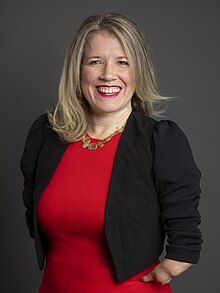Marie Tidball – 2024 Speech on the Terminally Ill Adults (End of Life) Bill
The speech made by Marie Tidball, the Labour MP for Penistone and Stocksbridge, in the House of Commons on 29 November 2024.
Today’s decision has been one of the hardest that I have had to make. In my career in disability law and policy, I chose not to focus on debates about whether disabled people should be born or whether we should die. Instead, I focused on enabling disabled people to live better, more fulfilling lives.
Today, I find myself voting in a way that I thought I never would. I will vote in favour of moving the Bill to the next stage of the legislative process. That has been a difficult journey for me. I have arrived here by looking at the evidence, reflecting on my own lived experience and listening to the many, many constituents who have written to me in support of the Bill, sharing their compelling and tragic stories of death—death which did not come with dignity or respect.
In reflecting on my own life, one moment from my childhood stood out. When I was six years old, I had major surgery on my hips. I was in body plaster from my chest to my ankles, and in so much pain and requiring so much morphine that my skin began to itch. I remember vividly laying in a hospital bed in Sheffield Children’s hospital and saying to my parents, “I want to die. Please let me die.” I needed to escape from the body I was inhabiting. That moment has come back to me all these years later. That moment made it clear to me that if the Bill was about intolerable suffering, I would not vote for it.
I have subsequently had a good life, a fulfilling life, a life where I have worked towards ensuring disabled people are valued by our society. But that moment also gave me a glimpse of how I would want to live my death: just as I have lived my life, empowered by choices available to me; living that death with dignity and respect, and having the comfort of knowing that I might have control over that very difficult time. For so often, control is taken away from disabled people in all sorts of circumstances.
In order to ensure that there is compassionate choice at the end of life, it is right that the Bill is tightly drawn around the final stage of terminal illness for adults and includes the strongest safeguards. The choice of assisted dying as one option for adults when facing six months’ terminal illness must be set alongside the choice of receiving the best possible palliative and end of life care, or it is no choice at all.
Having analysed the Bill closely, therefore, there are changes I would want to see in Committee to strengthen those options and ensure the way that choice is presented by medical practitioners is always in the round. People deserve dignity in death, and for those who do not choose to end their lives in this way, they and their loved ones should feel reassured and safe in the knowledge they will receive the very best of care. I would also want to ensure that the final stages of the Bill properly define “dishonesty”, “coercion” and “pressure”. I think it is necessary to embed mandatory language in the Bill around the need for a code of practice on palliative care, as well as improving the regulations on training for medical practitioners. I trust my hon. Friend the Member for Spen Valley (Kim Leadbeater) to champion those amendments and to continue to diligently listen to Members, as she has throughout this process.
However people vote today in this House—a decision of conscience—it is incumbent on all of us to commit to improve palliative, end of life and adult social care. It must be the start of the work that we do in this place to ensure the very highest standards in these areas. That will be a very great legacy indeed: giving people the dignity they need in the moment of death. For many of us across the Chamber, considering these issues has been extremely hard and upsetting. We have had to go to the very depths of our selves to understand what choice we will make today. While we may enter different voting Lobbies, we leave this Chamber shoulder to shoulder. I know we will all work in our own ways to make systemic change to improve the lives of our constituents, and people up and down this country.


